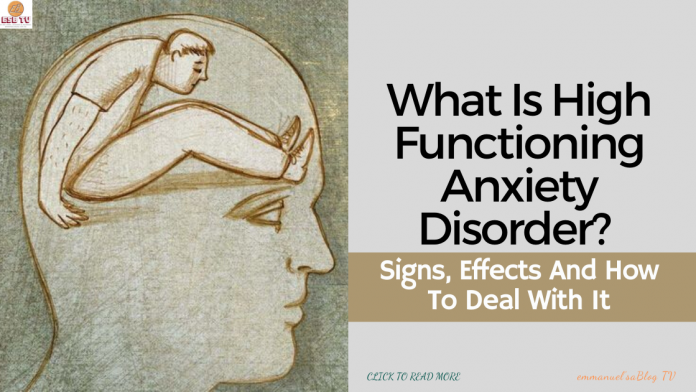This is probably the first time you are hearing this, and to be fair and honest, it sounds like a grave medical illness. However, there is no need to be worried. High functioning anxiety disorder is not a medical illness or condition, it is merely a term used to describe emotions and feelings that someone feels.
High functioning anxiety disorder is simply an expression to describe someone who has high levels of anxiety. It is often described as a good thing because it will motivate you to do what you are supposed to do. But when your anxiety levels are spiking so high so it affects your everyday life and normal activities, it could no longer be regarded as normal anxiety, but as a high functioning anxiety disorder.
Signs Of High Functioning Anxiety Disorder
People who have high functioning anxiety disorder experience symptoms such as restlessness. Among all other symptoms, sleeplessness and restlessness are some of the most common symptoms. Other signs and symptoms include insomnia, constant irritation, Tension in muscles, etc. note that these symptoms do not just develop over time, but can build over a period of months. However, if you experience these signs among others, then you should seek help immediately.
Effects Of High Functioning Anxiety Disorder
High functioning anxiety disorder affects its victims more than you can imagine. To begin with, it affects your everyday life, interfering in your daily activities and making you uncomfortable. Furthermore, high functioning anxiety disorder has its effects in the form of constant worrying, lack of concentration and even insomnia.
Experiencing all these symptoms will not only expose you to daily, constant distractions and worries, but it will also expose you to factors influencing stress and mental disorder. Over time, this problem if left unchecked, can develop into serious life-threatening health conditions.
Dealing With High Functioning Anxiety Disorder
Having a high functioning anxiety disorder is not a death sentence. It has been proven that cognitive-behavioural therapy is an effective treatment for it. It does not mean you have to condemn yourself to a life of therapy, however, a few or more sessions should be enough to get you back on track and in control of your life and emotions again. It depends on the level of your anxiety anyways. You can come up with your own method of calming yourself for relief as long as it works perfectly. Also, mind tricks seem to be also effective in bringing relief. But you must be aware that the earlier you handle the anxiety problem, the easier it will be to free yourself.


















